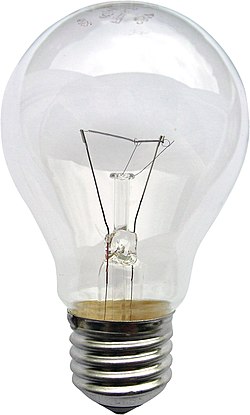
A lightbulb joke is a joke cycle that asks how many people of a certain group are needed to change, replace, or screw in a light bulb. Generally, the punch line answer highlights a stereotype of the target group. There are numerous versions of the lightbulb joke satirizing a wide range of cultures, beliefs, and occupations. [1] [2]
Contents
Early versions of the joke, popular in the late 1960s [3] [4] and the 1970s, were used to insult the intelligence of people, especially Poles ("Polish jokes"). [5] [6] Such jokes generally take the form of:
Q. How many [members of the target group] does it take to change a lightbulb?
A. Three — one to hold the light bulb and two to turn the ladder around.
Although lightbulb jokes tend to be derogatory in tone (e.g., "How many drunkards..." / "Four: one to hold the light bulb and three to drink until the room spins"), the people targeted by them may take pride in the stereotypes expressed and are often themselves the jokes' originators. [7] An example where the joke itself becomes a statement of ethnic pride is:
Q. How many Germans does it take to change a lightbulb?
A. One, we're very efficient but not funny.
Lightbulb jokes applied to subgroups can be used to ease tensions between them. [8]